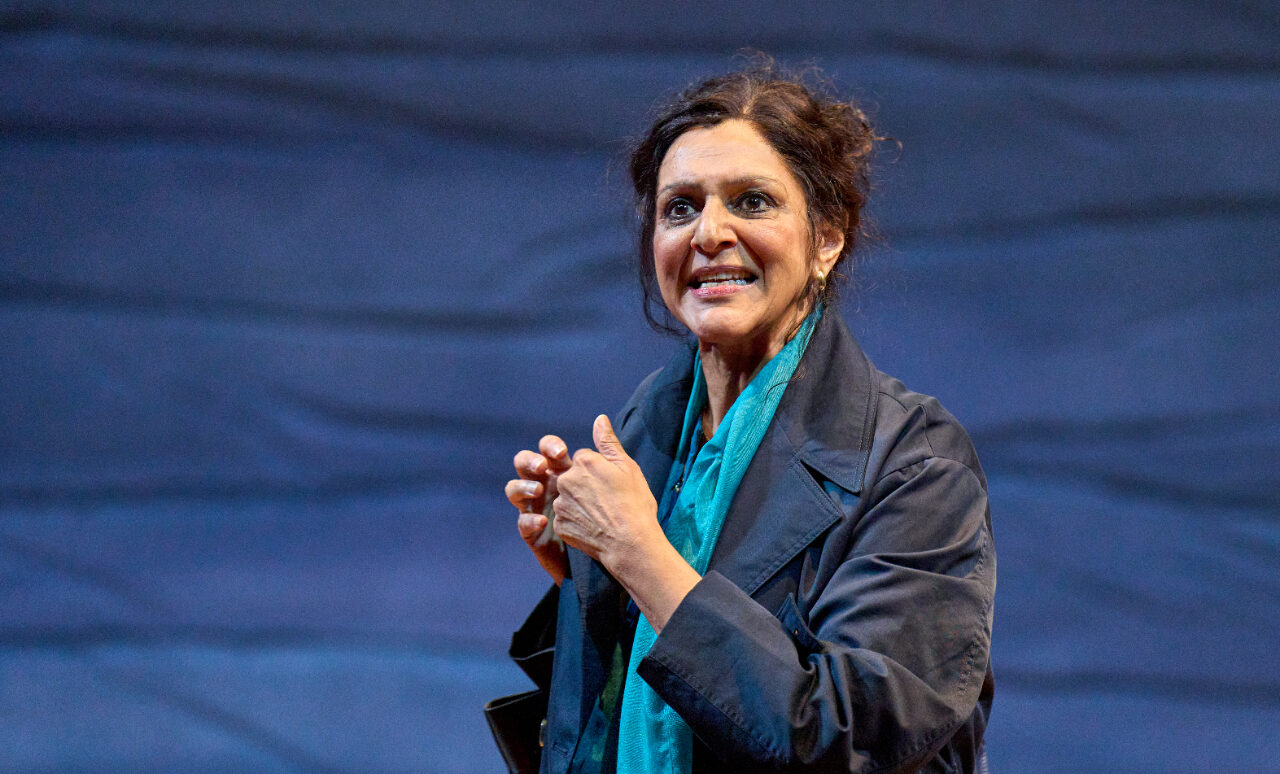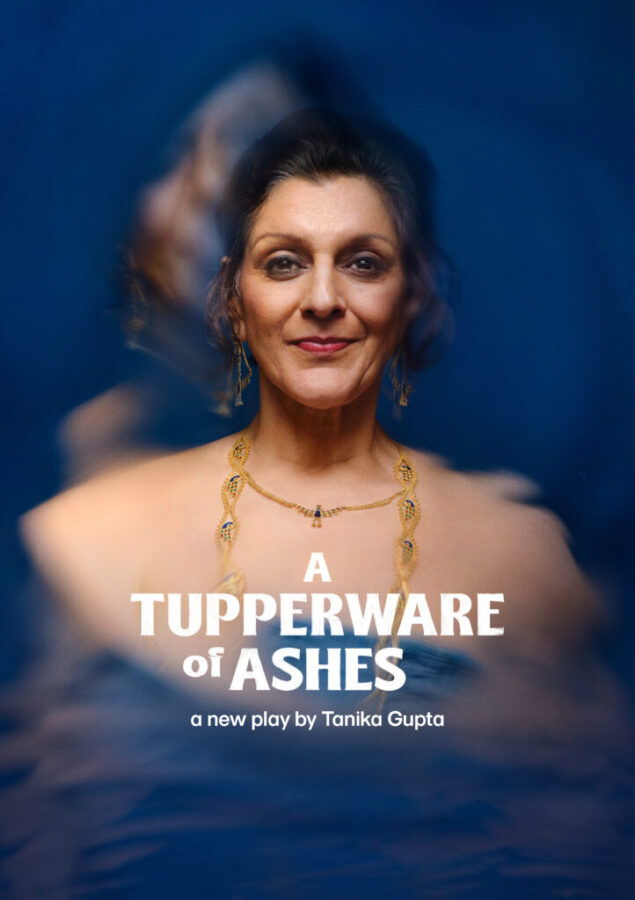A Tupperware of Ashes at the National Theatre

A crimson sunset ripples over a deep blue backdrop as Queenie (Meera Syal) stands by an Indian shore as her enthusiastic husband Ameet (Zubin Varla) splashes around in the water (to aptly timed sound effects) and coaxes her to get in. She refuses, he huffingly gives up and then she relents, edging into the water and spinning towards him as he holds open a red saree, pulling her closer as she gets engulfed in the cloth. A disjointed clash of noise startles us and the soft sunset light is replaced by a harsher, starker blue as Queenie coughs up water and Raj (Raj Bajaj), Queenie’s son, rescues her. They are by the North Sea in England and Queenie’s husband has been dead for 20 years.
A Tupperware of Ashes is masterfully written with complex characters who provoke both shock and empathy. A different play could make you hate Queenie, who frequently says abhorrent things to her children (“I wish I’d aborted you”) and daughter-in-law (“You asked her if she was wearing a wig!”), but A Tupperware of Ashes manages to deliver a shocking line one minute and then have you laughing along the next. Every character remains likeable because the actors let their humanity shine through, a reminder that our entire lives define us as complicated, messy, emotional beings trying to cope with the pitfalls of being alive.
Queenie’s children are also well-developed and nuanced, managing to escape falling into villain or martyr territory. Stephen Fewell and Shobna Gulati both give impressive performances as they shift seamlessly between the multiple personas they play, bringing each to life in an individualised way that shows their acting abilities. Fewell has a strong grasp on accents and manages to create memorable characters with little time.
The subtlety and depth exhibited in this play are staggering. Queenie’s internal world is brought to life through romantically lit flashbacks, which are frequently contrasted with harsh snaps back to reality. Music is a big part of this story, with ethereal flutes and sentimental tones giving way to more dark psychedelic unsettling sounds as we jump between realities. This play makes the audience live Queenie’s experience along with her as we see the world through her eyes. The juxtaposition of the scenes Queenie has with Amreet jumps between sweet sentimentality and eerie unease as we are pulled back into the subjective reality of the children’s experience. Sound is also used to set the scene – perfectly timed to allow a character to walk through water and have it feel believable or to mimic zooming traffic – in a way that helps the audience see and believe what isn’t there.
While the set’s design is minimalist it never feels lacking. Clever touches – like a trapdoor that allows Amreet to climb into Queenie’s suitcase – all animate the script. Nothing is missing and everything is thought out. Context is brought without having to be spelt out – in one nightmarish scene with jolting, disjointed sounds, the friendly nurse Pavel (Stephen Fewell) walks in in a COVID mask and terrifies Queenie. The narrative exposition is flawless and manages to convey a lot without ever feeling forced.
Grief, patience and duty are interwoven into the story in a way that feels gritty and real. Not afraid to go to dark places, A Tupperware of Ashes is a lot to process and requires a few deep breaths, but it is also expertly executed and well deserving of its standing ovation on opening night.
Sophia Moss
Photos: Manuel Harlan
A Tupperware of Ashes is at the National Theatre from 7th October until 16th November 2024. For further information or to book visit the theatre’s website here.


























Facebook
Twitter
Instagram
YouTube
RSS